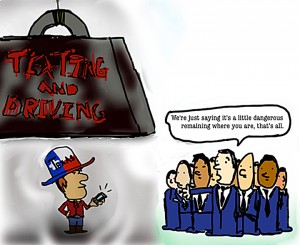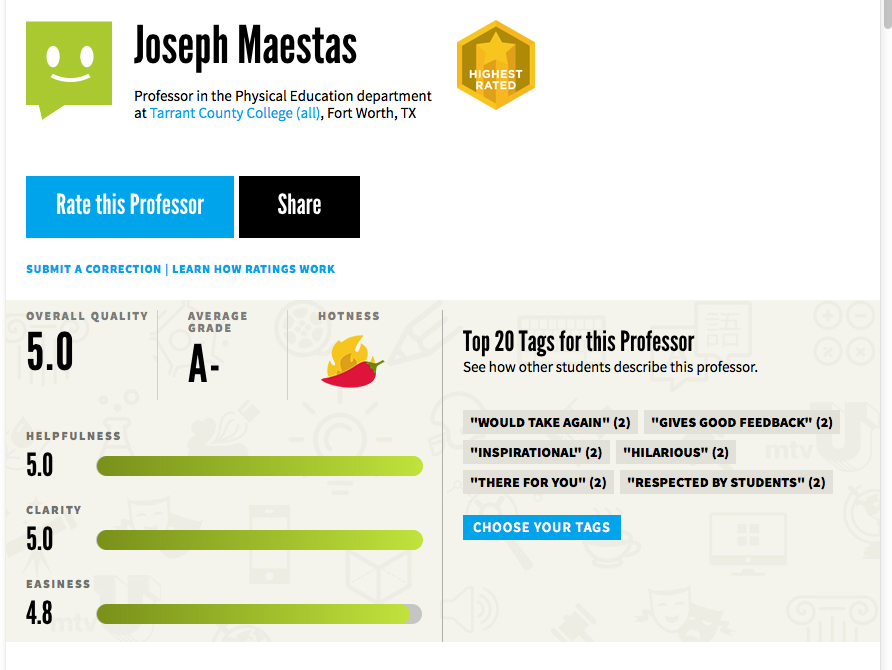
The Texas Legislature resumed and currently faces a bill to ban texting while driving. The silly part is this will be the third time Texas lawmakers have tried.
As advancements in technology have zapped humans into the 21st century, it’s understandable that legislation would take some time to catch up.
But as it stands, 44 states across the country have completely banned texting while driving. Texas joins Oklahoma, Mississippi, Missouri, Montana and Arizona that lack a statewide ban.
States like Missouri have implemented a statewide ban for drivers only 21 or younger while Montana doesn’t seem to have any statewide laws regarding texting while driving.
The National Safety Council has attributed 1.6 million accidents per year to texting drivers. That’s the cause of nearly 25 percent of all car accidents. The Harvard Center for Risk Analysis Study found that these accidents have caused approximately 330,000 injuries per year. According to the Center for Disease Control and Prevention, about 3,000 people died from texting while driving in 2012.
The dangers of texting while driving make this whole debate seem pointless. But still, the Legislature fails to pass a statewide ban.
Newly elected Gov. Greg Abbott said he is for safe driving and doesn’t want people texting and driving, but he wants to find a way to stop it without getting the government involved.
In states like Texas, it’s almost expected that a problem be solved without any help from the government. But options outside of a statewide ban seem a bit laughable.
Allstate and AT&T are a couple of examples where companies have asked for drivers to pledge to stop texting and driving. Several campaigns also ask young drivers to symbolically show their support for the cause.
Just recently, USAA ran an “It Can Wait” campaign, asking young people to sign a pledge online. It only requires an Internet connection and one finger to hit the big yellow button. The site claims 184,299 pledges were made.
But all of these are superficial ways of dealing with a deadly problem. Sure, it’s nice to have a program that has 184,299 people pledging to stop texting while driving. There’s no way to know if pledges are living up to their agreement. Therefore, it becomes comical.
In reality, the consequences of texting and driving aren’t as comical. A severe injury or even death to any driver or passenger involved is the worst outcome distracted drivers can face.
Supporters of the statewide ban connect this issue with road laws such as seat belts. It’s just something people know they have to put on to avoid that $250 ticket.
The mandatory seat belt law was a long-fought battle back in the early 1980s. It’s taken a couple decades, but people understand the value of having a law on the book.
In the same way, there might be blowback from the general public about the government getting involved with Texans texting. But if it means people are cautious of getting a ticket, at least they’ll put the phone away long enough to drive safely.
























